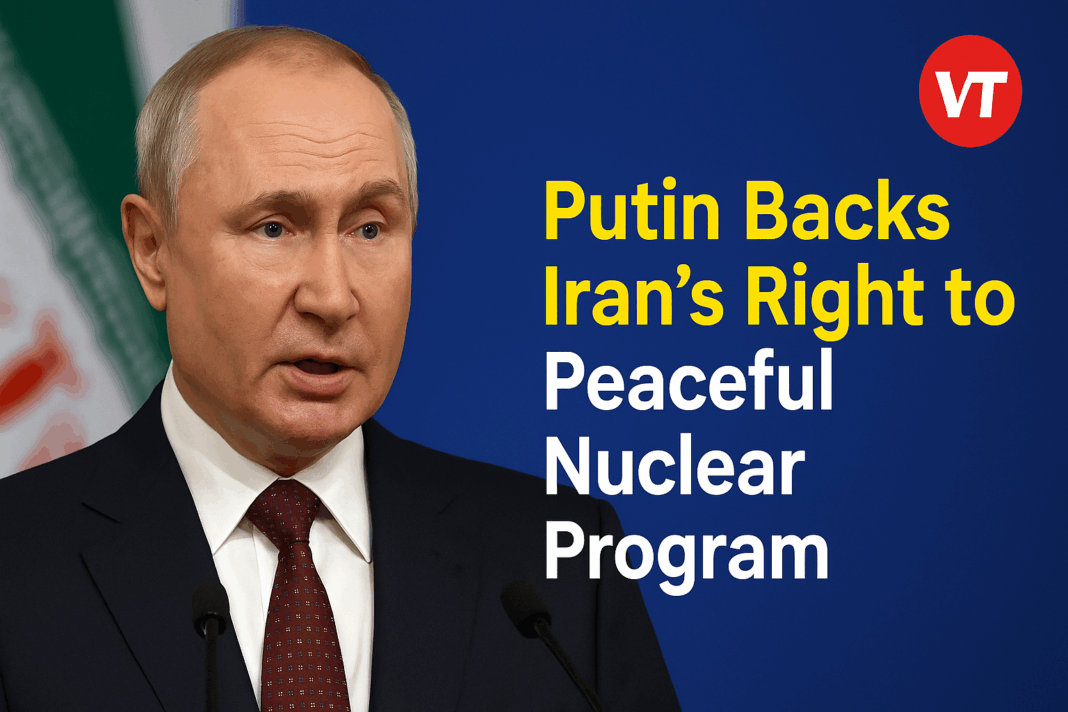Why it matters
Russian President Vladimir Putin’s comments backing Iran’s right to develop peaceful nuclear technology come at a critical moment in the Middle East. With Israel and Iran engaged in ongoing military conflict and the U.S. weighing its role, Putin’s remarks reflect Moscow’s continued strategic ties with Tehran and signal his willingness to mediate between key players, including Israel and the United States.
Driving the news
Speaking to Sky News Arabia in an interview reported by TASS, President Putin stated:
“Iran has the right to pursue nuclear technology programs for peaceful purposes. Russia is prepared to provide the necessary assistance and support in the development of peaceful nuclear energy, just as it has in previous years.”
He called for direct negotiations between Iran and Israel, adding: “There are specific issues, in my view, that can and must be the subject of negotiations.”
Catch up quick
- On June 13, Israel launched a major military operation targeting Iranian assets across the country.
- Iran responded with retaliatory strikes within 24 hours, and exchanges have continued since.
- Each side has confirmed casualties and direct hits on both military and civilian infrastructure.
- Putin’s statement follows weeks of speculation about how global powers might influence or intervene in the escalating conflict.
Putin and Trump dynamic
President Putin’s remarks also come as U.S. President Donald Trump has publicly delayed a decision on whether the United States will join Israel in launching strikes on Iran. Trump has given himself a two-week window to evaluate military options, citing potential diplomatic openings with Tehran.
Trump and Putin have maintained a working relationship over the years. During Trump’s previous term, the two leaders frequently engaged on nuclear and regional security issues. While the nature of their interactions in this conflict remains unclear, Putin’s call for restraint may factor into ongoing U.S. deliberations.
The global reaction
International organizations and foreign governments have urged de-escalation. The United Nations has warned of a widening regional conflict. The International Atomic Energy Agency (IAEA) expressed concern about reports of Israeli strikes near Iran’s nuclear sites, including Natanz, and called for full transparency and access to monitor any potential radiological risks.
Iran maintains that its nuclear program is solely for peaceful energy purposes. Israel, however, continues to assert that Iran’s uranium enrichment efforts pose an existential threat. This fundamental disagreement remains at the center of global diplomatic efforts.
What to watch
With Putin signaling Russia’s readiness to mediate and President Trump delaying a military decision, upcoming weeks may determine whether diplomacy can take precedence over escalation. Putin’s explicit support for peaceful nuclear cooperation and his call for dialogue between Iran and Israel adds a potential opening for negotiations—if both sides choose to engage.

